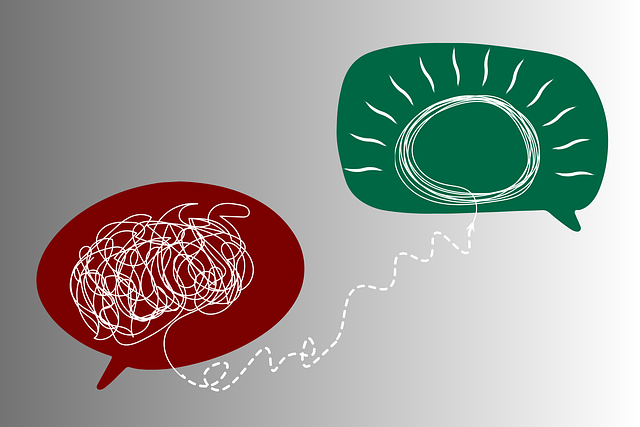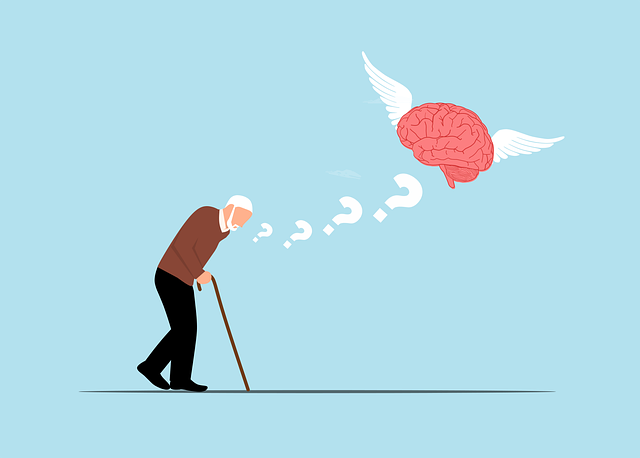TL;DR:
Therapists treating elders with anxiety must address unique challenges like cognitive decline, physical health issues, loneliness, and social isolation through tailored interventions. This includes developing coping skills, mindfulness techniques, encouraging social activities, reducing stigma, and building confidence. A robust risk management plan involves self-awareness exercises, thorough client assessments, and age-appropriate tools, alongside mental health education for professionals. Combining compassion cultivation, structured risk assessment, and ongoing learning promotes a supportive environment, effectively managing anxiety, and achieving positive therapeutic outcomes for elderly clients with therapy for elders anxiety.
“In the realm of mental health care, especially when focusing on elderly patients, risk management planning is paramount. This article guides mental health professionals through a strategic approach to navigating potential risks and anxiety within therapy settings. We explore key aspects such as understanding specific risk factors in elderly clients, creating robust risk management plans, and implementing strategies to mitigate anxiety during therapy sessions. By adopting these practices, therapists can enhance patient safety and foster more effective treatment outcomes for elders struggling with anxiety.”
- Understanding Risk Factors in Elderly Mental Health Therapy
- Developing a Comprehensive Risk Management Plan
- Strategies for Mitigating Anxiety in Elderly Therapy Settings
Understanding Risk Factors in Elderly Mental Health Therapy

Understanding risk factors is paramount when providing therapy for elders with mental health concerns. This demographic faces unique challenges that can significantly impact their overall well-being and therapeutic outcomes. Age-related changes, such as cognitive decline and physical health issues, often contribute to heightened anxiety and depression, necessitating tailored interventions. For instance, therapists must consider the effects of loneliness and social isolation prevalent among older adults, which can exacerbate existing mental health conditions.
In addressing therapy for elders with anxiety, professionals should focus on coping skills development to help them navigate age-related stressors. This may include teaching mindfulness techniques, encouraging engaging in meaningful social activities, and fostering a supportive environment that reduces the stigma associated with mental illness among seniors. Additionally, building confidence through therapeutic practices can empower older adults to embrace new strategies for managing anxiety and improving their overall quality of life.
Developing a Comprehensive Risk Management Plan

Developing a comprehensive risk management plan is an essential step for mental health professionals to ensure they can provide effective care while mitigating potential risks. This involves a holistic approach that includes regular self-awareness exercises to identify personal biases and triggers, which are crucial in navigating complex client situations, especially when dealing with elders experiencing anxiety. By fostering strong self-awareness, therapists can better manage their emotional responses, ensuring they remain present and attentive during sessions.
A well-structured risk management strategy also entails conducting thorough risk assessments for each client. This practice allows professionals to anticipate potential challenges and implement appropriate interventions. For example, a mental wellness podcast series production might be part of this process, offering educational content on managing anxiety in the elderly population. Such initiatives not only enhance the therapist’s knowledge but also provide clients with additional resources, fostering a more comprehensive approach to mental health care.
Strategies for Mitigating Anxiety in Elderly Therapy Settings

Anxiety among elderly clients is a prevalent challenge in therapy settings, requiring tailored strategies to ensure effective mental health care. For mental health professionals working with elders, managing anxiety involves a multifaceted approach. One key strategy is incorporating compassion cultivation practices into therapy sessions. Encouraging mindfulness and empathy towards self and others can help alleviate anxiety, fostering a sense of safety and trust. This, coupled with a patient-centered therapeutic style, allows for deeper engagement and more meaningful interventions.
Additionally, implementing structured risk assessment tools specifically designed for elderly populations is vital. These assessments should consider age-related cognitive changes and physical limitations, ensuring that risk factors are accurately identified. Furthermore, ongoing mental health education programs for professionals can enhance their ability to recognize and address anxiety in elders. By combining these approaches, therapy settings can create a supportive environment, effectively mitigate anxiety, and promote positive therapeutic outcomes for elderly clients.
Risk management planning is an indispensable tool for mental health professionals working with elderly clients, particularly those experiencing therapy-related anxiety. By understanding and addressing specific risk factors associated with eldercare, such as cognitive decline and social isolation, therapists can develop comprehensive strategies to ensure safe and effective treatment. Implementing tailored risk mitigation techniques, including structured assessment protocols and evidence-based interventions for anxiety, allows professionals to foster a supportive environment, enhance client outcomes, and ultimately improve the quality of therapy for elderly individuals navigating mental health challenges.











